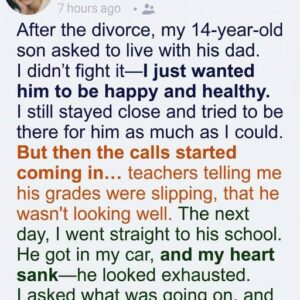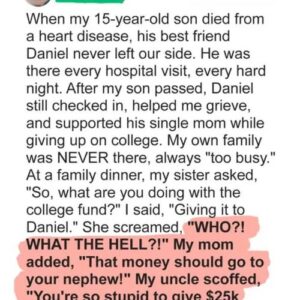One chilly afternoon, as the sun began to set, I was driving my usual bus route through the bustling streets of our small town. The day had been uneventful, and I was looking forward to finishing my shift and heading home. As I pulled up to a stop, the doors hissed open and a small, disheveled girl of about seven years old climbed aboard.
She looked up at me with big, pleading eyes. “Mister, I don’t have any money for the fare. Can you please give me a ride? I need to see my grandmother.”
I looked at her, my heart momentarily softened by her desperation. But the rules were clear and strict: no fare, no ride. I had learned the hard way that bending the rules could lead to all sorts of trouble. So, I steeled myself and said, “I’m sorry, but if you can’t pay, you can’t ride. You’ll have to get off the bus.”
The girl’s eyes filled with tears, but she nodded silently and stepped off the bus. I closed the doors and continued on my route, trying to push the encounter from my mind. Rules were rules, after all.
Back home, I settled onto the couch, tired but relieved to be done for the day. My wife was preparing dinner, and I idly scrolled through my Facebook feed to pass the time. Suddenly, a photo caught my eye. It was the same little girl from earlier, her face now familiar but tinged with a haunting urgency. The caption read: **”MISSING. Last seen near the downtown bus stop. Please contact authorities with any information.”**
A chill ran down my spine as guilt and panic surged through me. “WHAT HAVE I DONE?” I muttered under my breath. I showed the post to my wife, her face mirroring my shock and horror. “Call the police!” I urged her, grabbing my coat and rushing out the door into the night.
The town felt eerily quiet as I drove through the streets, my eyes scanning every corner, every shadow for any sign of the girl. I retraced my bus route, my mind racing. How could I have been so heartless? The thought of her wandering alone, scared and possibly in danger, gnawed at my conscience.
After what felt like hours, I spotted a small figure huddled by a park bench under a flickering streetlamp. I pulled over and jumped out of the car, my heart pounding. It was her. She looked up as I approached, her face pale and streaked with tears.
“Hey,” I said softly, trying not to startle her. “It’s me, the bus driver. I’m so sorry for earlier. Are you okay?”
She nodded weakly, shivering in the cold. “I just wanted to see my grandma,” she whispered, her voice breaking.
I wrapped my coat around her small shoulders and called my wife to let her know I had found the girl. Soon, the police arrived, and I explained everything to the officers. They reassured me that she would be taken to her grandmother safely.
As I watched the police car drive away, a heavy weight lifted from my shoulders. But the guilt remained, a stark reminder of my failure to show compassion when it was needed most.
The next morning, I received a call from the police. The girl’s grandmother wanted to meet me. Nervously, I agreed and drove to their home. The grandmother, a frail but kind-looking woman, greeted me with a warm smile.
“Thank you for finding my granddaughter,” she said, her voice full of gratitude. “She means the world to me.”
I nodded, feeling a lump in my throat. “I’m just glad she’s safe,” I replied.
From that day on, I made a vow to myself. While rules are important, humanity and kindness should always come first. Because sometimes, a small act of compassion can change everything.





